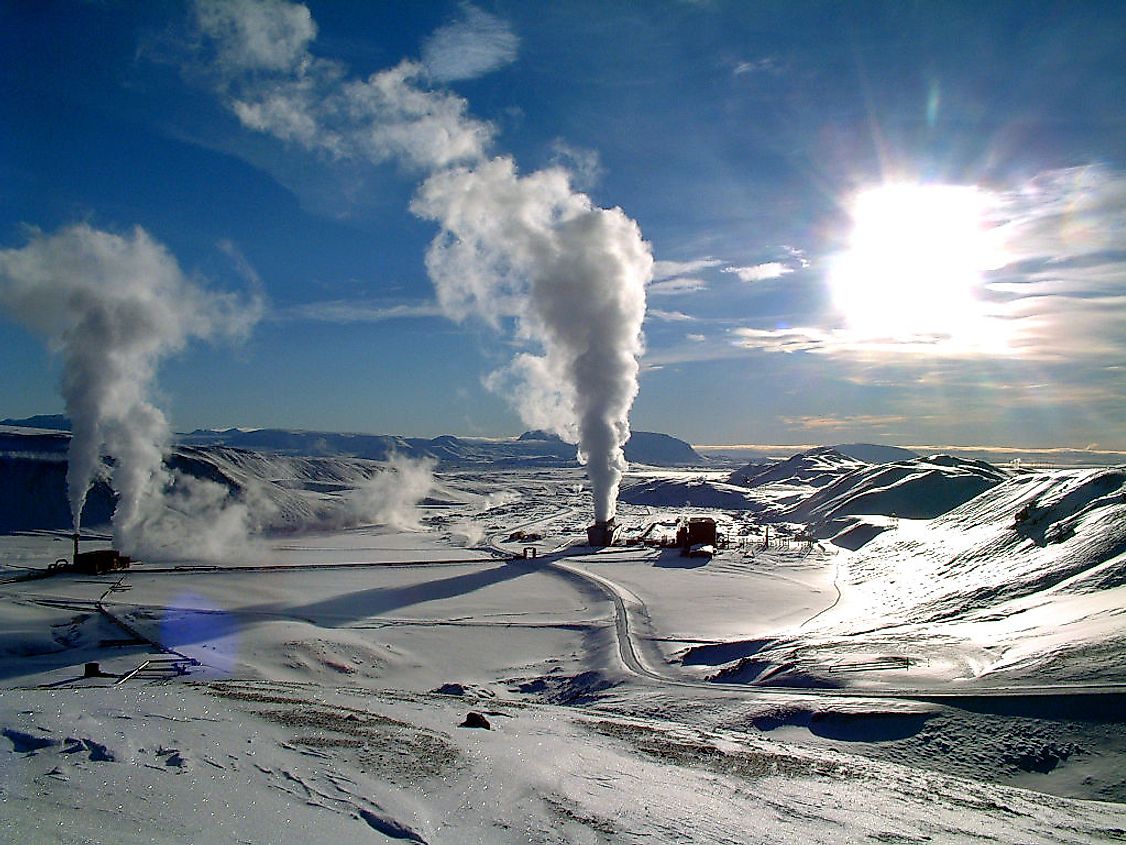Countries With The Greatest Decreases In Greenhouse Emissions Over The Last 26 Years

Greenhouse Gases
Greenhouse gasses include methane, nitrous oxide, carbon dioxide, and ozone. They collect in the atmosphere and absorb solar radiation, part of which is released back into the atmosphere thus warming the earth’s surface. While some greenhouse gasses are necessary to maintain livable temperatures (without them, the average temperature would be 0 degrees), above normal levels of greenhouse gasses contributes to global warming. Global warming has negative consequences on ecosystems and biodiversity all over the world. International conventions have been held to discuss how countries can reduce greenhouse gas emissions to control and reduce global warming. Some countries have managed to significantly reduce their emissions since 1990. They are discussed in this article.
Decreases in Greenhouse Gas Emissions
Ivory Coast
Since 1990, the Ivory Coast in Africa has been able to reduce its greenhouse gas emissions by an astounding 78% by working with the United Nations Environment Program. This country took measures to incorporate new technologies to increase energy efficiency, to introduce industry energy audits, and to utilize biomass energies. The plan also included reforestation goals to offset carbon emissions, protection of forests and green areas, and improvement of soil fertility for the agricultural sector.
Suriname
Suriname, a South American country, and Iceland, a Nordic island nation, have also made significant progress in reducing greenhouse gasses. Since 1990, these countries have seen a 75% reduction in emissions. Suriname has a long history of protecting its natural resources, in fact, 94% of the land has remained forested over the years which has been able to absorb approximately 350 million tons of carbon dioxide. In addition, Suriname relies on hydropower to produce its electricity needs.
Iceland
Iceland has also always maintained low levels of greenhouse gas emissions and continues committing to increased reductions. This island nation is a global leader in clean energy initiatives and produces 100% of its electricity needs via geothermal or hydropower. Iceland has also taken advantage of its geothermal capabilities to heat 90% of its homes and buildings.
Moldova
Another great reduction in greenhouse gasses has been achieved by Moldova where emissions have gone down by 70% since 1990. This country has created its greenhouse gas reduction plan by following the guidelines of the United Nations Framework Convention on Climate Change. They have applied these guidelines to the energy, industrial, forestry, waste, and agricultural sectors and today their share of global greenhouse gas emissions is only 0.03%.
Other countries with significant reductions since 1990 include: Guyana (-63%), Papua New Guinea (-62%), Georgia (-62%), Latvia (-59%), Kyrgyzstan (-59%), and Estonia (-58%).
Environmental Implications
By utilizing their natural alternatives, these countries have joined the fight against global warming by using cleaner energy sources, promoting energy efficient homes and businesses, and improving industrial practices. Without their participation, the earth would be one step closer to dangerous levels of climate change and its impacts on societies and ecosystems. Countries come together to participate in climate change conferences where they reach agreements about commitments to greenhouse gas emissions. The goal has been that global warming should not go beyond 35 degrees fahrenheit, but not all countries can agree on their level of participation. Other points of contention are on providing financial support for the southern hemisphere, as implementing green initiatives is often costly, and on responsibility sharing between developed and less developed countries. Less developed countries often view curbing greenhouse gas emissions as an obstacle to industrialization and progress, claiming that now developed nations have caused the current problem and should, therefore, pay for the cost of reversing it. Without an international commitment with real reduction goals, human-induced global climate change will continue to bring about such natural disasters as droughts, tornados, flooding, storms, forest fires, and loss of plant and animal biodiversity.
Countries With The Greatest Decreases In Greenhouse Emissions Over The Last 26 Years
| Rank | Country | Greenhouse Gas Emission Changes Since 1990 |
|---|---|---|
| 1 | Ivory Coast | -78% |
| 2 | Suriname | -75% |
| 3 | Iceland | -75% |
| 4 | Moldova | -70% |
| 5 | Guyana | -63% |
| 6 | Papua New Guinea | -62% |
| 7 | Georgia | -62% |
| 8 | Latvia | -59% |
| 9 | Kyrgyzstan | -59% |
| 10 | Estonia | -58% |











